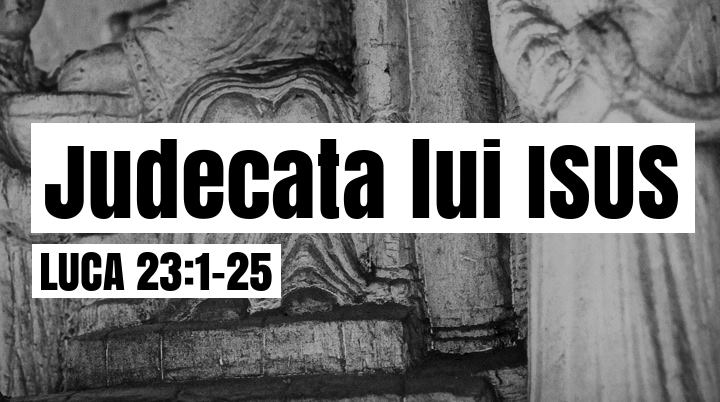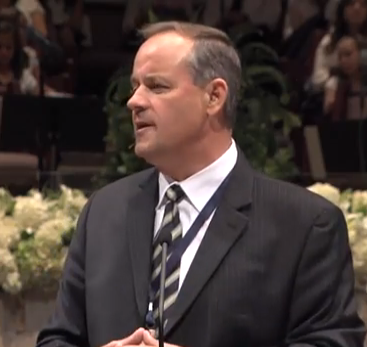Click to read Steve Hays e book response here.
from an article written by Steve Hays, the main blogger at the legendary Triablogue for Reformation21:
John Loftus wrote this book The End of Christianity (Amherst: Prometheus Books, 2011) John Loftus, ed.435 pp, as his third installment in Loftus’s serial case against the Christian faith.
In the introduction, Loftus says Christians shoulder the burden of proof since they are making „extraordinary” claims about the supernatural.Loftus says scientific realism is the „neutral” or „default” position. All „metaphysical claims” must be scientific. Click here to read the entire post.
Here is an outline of the book:
Outline:
I. Why 2000 Years is Enough
1. Christianity Evolving: On the Origin of Christian Species, by David Eller
Before one can address the truth-status of Christianity, one must ask the question, “What do you mean by Christianity?” which amounts to the question, “Which particular Christianity do you mean?” Christianity is not, and never has been, a single doctrinally- or institutionally-unified religion. Rather, like all thought-systems, indeed like all systems including living systems, Christianity is diverse, adaptive, and evolving. In fact, Christianity does not refute the well-established processes of evolution—speciation, radiation, competition, extinction, and so on—but actually illustrates those processes. This chapter will examine three historical periods of Christian speciation: (1) the early period, from the first centuries to the Reformation, (2) the American period, with new uniquely American adaptations like Mormonism and Christian Science and Seventh Day Adventism and Jehovah’s Witness and more recent developments like the “prosperity gospel” and the “manly Jesus” movement, and (3) the 21st century global period, with new Christianities emerging in Africa, Latin America, Asia, and elsewhere. Christianity will be seen as a genus containing many species, cooperating and competing, simultaneously preying on and symbiotic with other species/sects of Christianity, with other religions, and with other non-religious elements of society such as race, nationalism, and even technology. In the end the supposed “truth” of Christianity is undermined by the lack of agreement—and the presence of active and heated disagreement—on what Christianity is. The endless morphing of Christianity precludes any possible agreement.
2. Christianity’s Success Was Not Incredible, by Richard Carrier
A common defense of Christianity is the argument that it could not have begun or succeeded without divine intervention. A whole parade of arguments descends from this common assumption. For example, it is claimed that no one, especially in the ancient West, would have worshipped a crucified, incarnate god (especially someone from a lower class background), or accepted a novel religion, or embraced its strict morals, or believed anyone could be resurrected from the dead, or confessed faith in the face of such violent persecution. Yet people did. It’s similarly claimed that Christianity depended on the testimony of women (yet women were never trusted) and could so easily be disproved, the fact that it wasn’t entails it must be true. But none of these claims are factually true. When we look at the actual facts of the time and place of Christianity’s origin, we find that its conception and growth were not remarkable at all. In fact, what happened is quite the contrary of what we would expect if the religion really did have the backing of a miracle-working God. The actual evidence of its first three centuries, in other words, actually disconfirmsChristianity, rather than supports it.
3. Christianity is Wildly Improbable, by John W. Loftus
In this chapter I will offer a smorgasbord of arguments that will show Christianity, especially the Evangelical kind, is wildly improbable. I will show this from the writings of the three men evangelicals admire the most: Alvin Plantinga, William Lane Craig and Richard Swinburne. Then I will show it from the bizarre derivative beliefs Christians have that are not familiar to most of them. I’ll end the chapter with what I call a Reality Check articulating what it takes to defend Christianity. Basically doing so makes otherwise brilliant people look stupid.
II. Putting an Ancient Myth to Rest
4. Why Biblical Studies Must End, by Hector AvalosIn this chapter I will sum up my call for an end of Biblical studies as we know them based on my book, The End of Biblical Studies.
5. Can “God” Exist if “Yahweh” Doesn’t?, by Jaco Geicke
According to the Bible, God’s thoughts are not our thoughts and his ways are not our ways. These days, however, it has become clear that the biblical deity talked like a child, thought like a child and reasoned like a child. Yahweh’s own alleged beliefs about the world demonstrably contain the same errors of fact prevalent in the outdated knowledge systems of the people who worshipped him. Moreover, Yahweh’s supernatural realm is hardly beyond imagination but was the creation of the human imagination filled with the delusion that the universe as a whole functions very much like an ancient Near Eastern monarchy, the technological development of which will forever reflect the material culture of the Iron Age. Even the deity’s psychological profile is typical of a male ruler with an ego to match. The absurdity of all this gives the game away and all apologetic appeals to divine accommodation, anthropomorphism or metaphor just show that even Christians no longer really believe in Yahweh. They have to reinterpret the Bible to make it believable, thereby exposing philosophical theology as reconstructive mythology. There is no better argument against Christian philosophy of religion than the history of Israelite religion.
6. God’s Emotions: Why the Biblical God is Hopelessly Human, by Valerie Tarico
Tarico addresses eight features of the biblical god in light of psychological science: The character and personality of the biblical god; why we humans necessarily assume that God has feelings (given the evolution of our theory of mind, mirror neurons, and empathy); how emotions function and why they are irrelevant for an all powerful deity; God’s temper (and what we know about social status, power, and anger—and why anger is incompatible with omniscience and omnipotence); why we act like God is a sucker (with our cajoling, wheedling, and flattery, given what we know about social persuasion, manipulation and intercessory prayer); „Jesus Loves Me,” the perfect friend or the Stepford friend? (the ideas of imaginary friends and introjected parents); why we would believe „I am the center of God’s universe” (inescapable narcissism of the human experience); and concluding: if God were a mammal (the peculiarly mammalian blueprint for the biblical god’s emotional make-up).
III. Living on Borrowed Time
7. The Absurdity of the Atonement, by Ken Pulliam
The penal substitutionary doctrine of the atonement is described by most leading evangelicals as the one represented in the Bible. This chapter will deconstruct such a doctrine as ignorant and unbecoming any thinking person in today’s world.8. The Salem Witch Trials and the Evidence for the Resurrection, by Dr. Matt McCormick
Epistemic standards for what is a reasonable belief shift over time. With the expansion of science, the relevant background information for many beliefs changes. Rules of inference improve. Education expands. More of nature is understood. As a result, what may have been reasonable to believe for someone hundreds or thousands of years ago ceases to be so for us. You don’t believe that the people who were tried and convicted for witchcraft in Salem, Massachusetts three hundred years ago were really witches. You don’t think that there really were evil demons possessing the people who had the plague in 14th century Europe. You don’t think that aliens are frequently abducting humans from Earth, even though there are many people who say that it has happened to them. But you probably believe the central and essential doctrine of Christianity: a man named Jesus in the first century came back from the dead. When we put the evidence for these different claims side by side, however, it becomes clear that by any fair measure of quantity and quality, the evidence in favor of witches at Salem, evil demons in the 14th century, and alien abductions is much better than the evidence we have for Jesus’ return from the dead. That is, your epistemic standards would already lead you to reject the case for Jesus if you were being consistent.
9. Explaining the Resurrection Without Recourse to Miracle, by Dr. Robert Price
A look at what a deeper analysis the New Testament reveals would more likely have happened to Jesus rather than the resurrection, making a simple and well-argued case that even old fashioned survival hypotheses, for example, even if false, are still more believable than a resurrection.
10. Hell: Christianity’s Most Damnable Doctrine, by Keith Parsons
The doctrine of an eternal, punitive hell remains a mainstay of orthodox Christian doctrine. This article will briefly review the role the doctrine of hell has played in the history of Christianity, and will show that the doctrine has not been a peripheral or incidental element, but a central part of Christian preaching and teaching. Indeed, without the doctrine of hell, it is questionable whether Christianity could ever have achieved the impetus that has made it a religion with two billion adherents. Essentially, the doctrine has served as a tool of psychological warfare, the ultimate ad baculum argument for Christian ideology. It will then examine some contemporary defenses of the doctrine of a punitive hell by Peter Kreeft, Ronald Tacelli, and C.S. Lewis. The salient issues here are whether the doctrine of hell is coherent, whether it is consistent with basic tenets of theism, such as the goodness and omnipotence of God, and whether it is incompatible with our basic moral intuitions about justice, desert, and the justification of punishment. I argue that these contemporary defenses of hell are one and all bereft of cogency, and, indeed, indicate the moral and intellectual contortionism practiced by those who seek to defend the indefensible.
IV. Science Puts an End to Christianity.
11. Is Religion Compatible with Science?, by David Eller
The question of the compatibility of religion and science depends on the definitions of “religion,” “science,” and “compatibility.” Most discussions of the subject neglect this crucial point, taking “religion” to mean Christianity and “science” to mean evolution, neither of which is accurate or adequate. After reviewing the dominant positions on the religion/science debate and showing their insufficiencies, the chapter will argue that “compatibility” is the wrong approach to the whole affair. No religion or religious person dismisses science as such, and some religions are more compatible with some aspects of science than other religions (for instance, Hinduism with a very ancient universe or Buddhism with evolution).Religions have also proven themselves to be highly flexible, able to absorb virtually any scientific fact; further, religions often employ scientific (or scientific-sounding) arguments to support their supernatural doctrines. Science and religions only openly conflict when they make irresolvable claims on the same subject, such as human origins, and in such instances science must prevail. Ultimately we will find that science and religion are two entirely dissimilar thought-processes—science based on knowable antecedent conditions or causes and religion on inherently unknowable supernatural intentions or future goals—and that religion is not so much incompatible with science as irrelevant to science. Religions come to be understood as alleged supernatural mindreading and therefore not worth scientific consideration.
12. Neither Life nor the Universe Appear Intelligently Designed, by Richard Carrier
The most common argument on which Christianity depends is the Argument from Design. But the evidence actually argues against Christianity being a credible explanation of apparent design in the universe. In fact, the evidence argues against there being any intelligent design of the universe at all. Of course, all the apparent design in the organization of life on earth has been far more adequately explained by natural selection than by any theory of intelligent design, and denying this requires a measure of irrationality or dishonesty. But even the origin of life and the supposed „fine tuning” of the physical constants of the universe make no sense as the result of deliberate engineering, yet make perfect sense as the result of random accident. This conclusion can actually be demonstrated with such logical certainty that Christianity is fully disconfirmed by the evidence of life and the universe, and this, too, can only be denied by embracing a measure of irrationality or dishonesty.
13. Life After Death: A Scientist Looks at the Evidence, by Victor Stenger
A refutation of Dinesh D’Souza’s Life After Death: The Evidence.
14. Moral Facts Naturally Exist (and Science Could Find Them), by Richard Carrier
It is often claimed that if no religion is true, then there is no reason for anyone to be moral. But quite the opposite is the case: only empirically confirmable facts can constitute a sound and valid reason for anyone to be moral, and yet religions do not provide any. Since only the natural earthly facts observable to everyone can ever provide a sufficient reason to be moral, and those facts do not require any religion to be true, religion is either irrelevant or in fact harmful to moral progress in society, by motivating people to embrace false moralities or preventing them from discovering the real reasons to be moral. It will here be demonstrated that there are natural facts which entail everyone will benefit from adopting certain moral attitudes and behaviors, that science could demonstrate this if it undertook the proper research program, and that as a result Christianity is either irrelevant or an obstacle to genuine moral sentiment.





































































































































































































































































